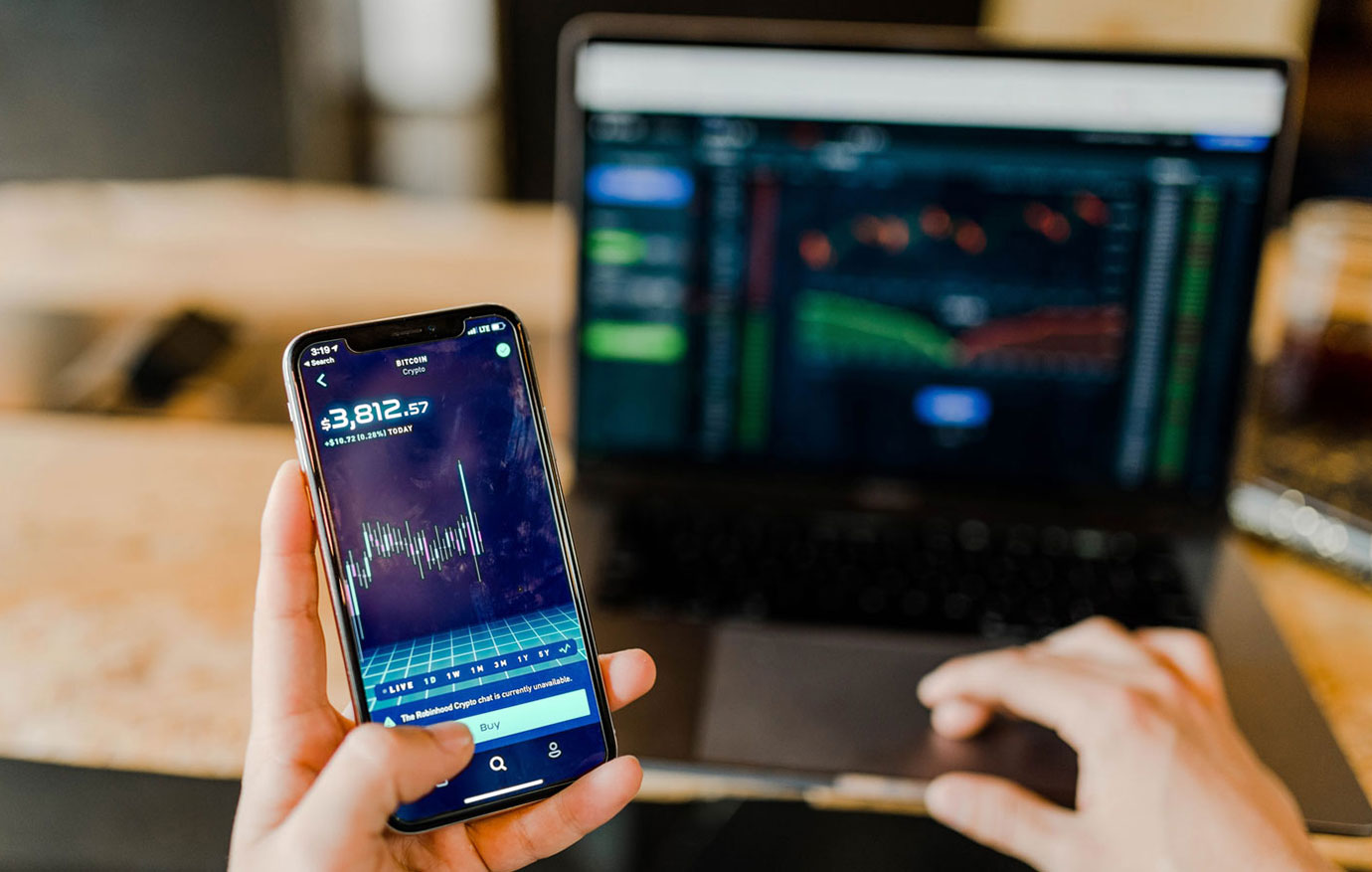
Stop Trying to Turn Economics into a Branch of Psychology
Recently, a relatively new economics called behavioral economics (BE) has started to gain popularity. Its practitioners, such as Daniel Kahneman, Vernon Smith, and Richard Thaler, were awarded Nobel Prizes for their contribution in the field of BE.
The BE framework emerged because of dissatisfaction with the neoclassical theory regarding consumer choices. In the neoclassical theory, individuals are presented as if a scale of preferences is hard-wired in their heads. Regardless of anything else, this scale remains the same all the time.
The practitioners of BE hold that this is unrealistic. To make the mainstream framework more realistic they are of the view that there is the need to introduce psychology into economics.
It is held that individual’s emotional state is a major factor in their decision process. If consumers are becoming more optimistic regarding the future then this is going to be an important message to businesses regarding investment decisions.
According to BE researchers whether consumers are generally patient or impatient determines whether or not they are inclined to spend or save today. If they are more patient and save more, then this can generate funds for entrepreneurs’ new investment projects.
Behavioral economists emphasize the importance of personality. An emphatic person is regarded more likely to make altruistic choices. Impulsive people are more likely to be impatient and not so good at saving up for their retirement. Venturesome people are more likely to take risks—they will be more likely to gamble.1
Whilst the BE criticism of mainstream economics is valid, the question arises whether BE solves the issue of unchanged consumer preferences and presents consumers as real people and not as human machines.
We suggest that the key here is the definition of what human beings are all about. According to the BE, people are not rational in a sense that they are using reason in various decisions. According to BE practitioners, the key driver of consumer choices are emotions. On this, the Nobel Laureate Vernon Smith holds, “People like to believe that good decision making is a consequence of the use of reason, and that any influence that the emotions might have is antithetical to good decisions. What is not appreciated by Mises and others who similarly rely on the primacy of reason in the theory of choice is the constructive role that the emotions play in human action.”
Once the importance of reason is dismissed, what is then left is treating human beings like objects. According to this way of thinking, human action is not navigated by reason but by outside factors that act upon individuals. By means of a given stimulus, one can then observe various human reactions and draw all sorts of conclusions regarding the world of economics. According to Ludwig von Mises, however, “It is impossible to describe any human action if one does not refer to the meaning the actor sees in the stimulus as well as in the end his response is aiming at.”
By rejecting the importance of the human reason, behavioral and experimental economists treat human beings as another animal. In fact, some of the experimental economists are conducting various experiments on pigeons and rats in order to verify various propositions of mainstream economics.
Why Psychology Will Not Make Economics More Realistic
Psychology is an important constituent in behavioral and experimental economics on the ground that human action and psychology are interrelated disciplines. There is however, a distinct difference between economics and psychology. Psychology deals with the content of ends. Economics, however, starts with the premise that people are pursuing purposeful conduct. It does not deal with the particular content of various ends.
According to Murray N. Rothbard, “A man’s ends may be ‘egoistic’ or ‘altruistic’, ‘refined’ or ‘vulgar’. They may emphasize the enjoyment of ‘material goods’ and comforts, or they may stress the ascetic life. Economics is not concerned with their content, and its laws apply regardless of the nature of these ends,” whereas “[p]sychology and ethics deal with the content of human ends; they ask, why does the man choose such and such ends, or what ends should men value?”
Therefore, economics deals with any given end and with the formal implications of the fact that men have ends and utilize means to attain these ends. Consequently, economics is a separate discipline from psychology. By introducing psychology into economics, one obliterates the generality of the theory.
Contrary to mainstream thinking, the Austrian school of economics always held that valuations do not exist by themselves regardless of the things to be valued. On this Rothbard wrote, “There can be no valuation without things to be valued.” Valuation is the outcome of the mind valuing things. It is a relation between the mind and things.
Now, if preferences are constant then it is possible to compress these preferences into a mathematical formulation, i.e., one can capture people’s wishes by means of a formula, so it is held. This is labelled by mainstream economics as a utility function.
Obviously, people do change their minds, so it is not surprising that BE practitioners have “discovered” that real people’s behaviour systematically deviates from the one of the human machine as depicted by the mainstream economics.
The Misesian Framework of Consumer Choices
Following the Mises’s framework of thinking, we can ascertain the distinguishing characteristic and the meaning of human action. For instance, one can observe that people are engaged in a variety of activities. They may be performing manual work, driving cars, walking on the street or dining in restaurants. The distinguishing characteristic of these activities is that they are all purposeful.
Furthermore, we can establish the meaning of these activities. Thus, manual work may be a means for some people to earn money, which in turn enables them to achieve various goals like buying food or clothing. Dining in a restaurant can be a means for establishing business relationships. Driving a car may be a means for reaching a particular destination.
People operate within a framework of ends and means; they use various means to secure ends. We can conclude from the above that actions are conscious and purposeful.
The knowledge that human action is conscious and purposeful is certain and not tentative. Anyone who tries to object to this contradicts himself for he is engaged in a purposeful and conscious action to argue that human actions are not conscious and purposeful.
Various conclusions that are derived from this knowledge of conscious and purposeful action are valid as well, implying that there is no need to subject them to various laboratory tests as is done in the experimental economics. For something that is certain knowledge, there is no requirement for any empirical testing.
Behavioral and experimental economists such as Nobel Laureate Vernon Smith, reject however the view that human actions are conscious and purposeful. According to Smith,
He [Mises] wants to claim that human action is consciously purposeful. But this is not a necessary condition for his system. Markets are out there doing their thing whether or not the mainspring of human action involves self-aware deliberative choice. He vastly understates the operation of unconscious mental processes. Most of what we know we do not remember learning, nor is the learning process accessible to our conscious experience—the mind…. Even important decision problems we face are processed by the brain below conscious accessibility.
Means-Ends and Consumer Choices
Purposeful action implies that people assess or evaluate various means at their disposal against their ends. Individual ends set the standard for human valuations and thus choices. By choosing a particular end, an individual also sets a standard of evaluating various means.
If my end is to provide a good education for my child, then I will explore various educational institutions and will grade them in accordance with my information regarding the quality of education that these institutions are providing. Observe that my standard of grading these institutions is my end, which is to provide my child with a good education.
Alternatively, if my intention is to buy a car, there are all sorts of cars available in the market, and as such, I have to specify to myself the specific ends that the car will help me to achieve. Since an individual’s ends determine his evaluations of means and thus his choices, it follows that the same good will be valued differently by the individual as a result of changes in his ends.
At any point in time, people have an abundance of ends that they would like to achieve. What limits the attainment of various ends is the scarcity of means. Hence, once more means become available, a greater number of ends, or goals, can be accommodated—i.e., people’s living standards will increase.
Another limitation on attaining various goals is the availability of suitable means. Thus to quell my thirst in the desert, I require water. Diamonds in my possession will be of no help in this regard.
Observe that the means-end framework is the essence of any human action whether the action is in accordance with what is regarded as rational conduct, or not.
Furthermore, once it is accepted that human actions are conscious and purposeful it will not make much sense to extract preferences in a laboratory, or by means of questionnaires, since only something that is constant can be extracted.
Conclusions
By casting doubt on the notion that reason is the main faculty that navigates human actions behavioral economics emphasizes the importance of emotions as the key driving factor of human actions.
By means of psychological analysis, the practitioners of behavioral economics have supposedly demonstrated that people’s conduct is irrational.
Consequently, the practitioners of behavioral economics may have unintentionally laid the foundation for the introduction of government controls to “protect” individuals from their own irrational behavior.
For instance, wide fluctuations in financial markets can be attributed to irrational behavior, which can damage the economy. Hence, it will make a lot of sense to restrain this irrationality by a dosage of restraining regulations.
1. Michelle Baddley, Behavioural Economics: A Very Short Introduction (Oxford: Oxford University Press, 2017).



